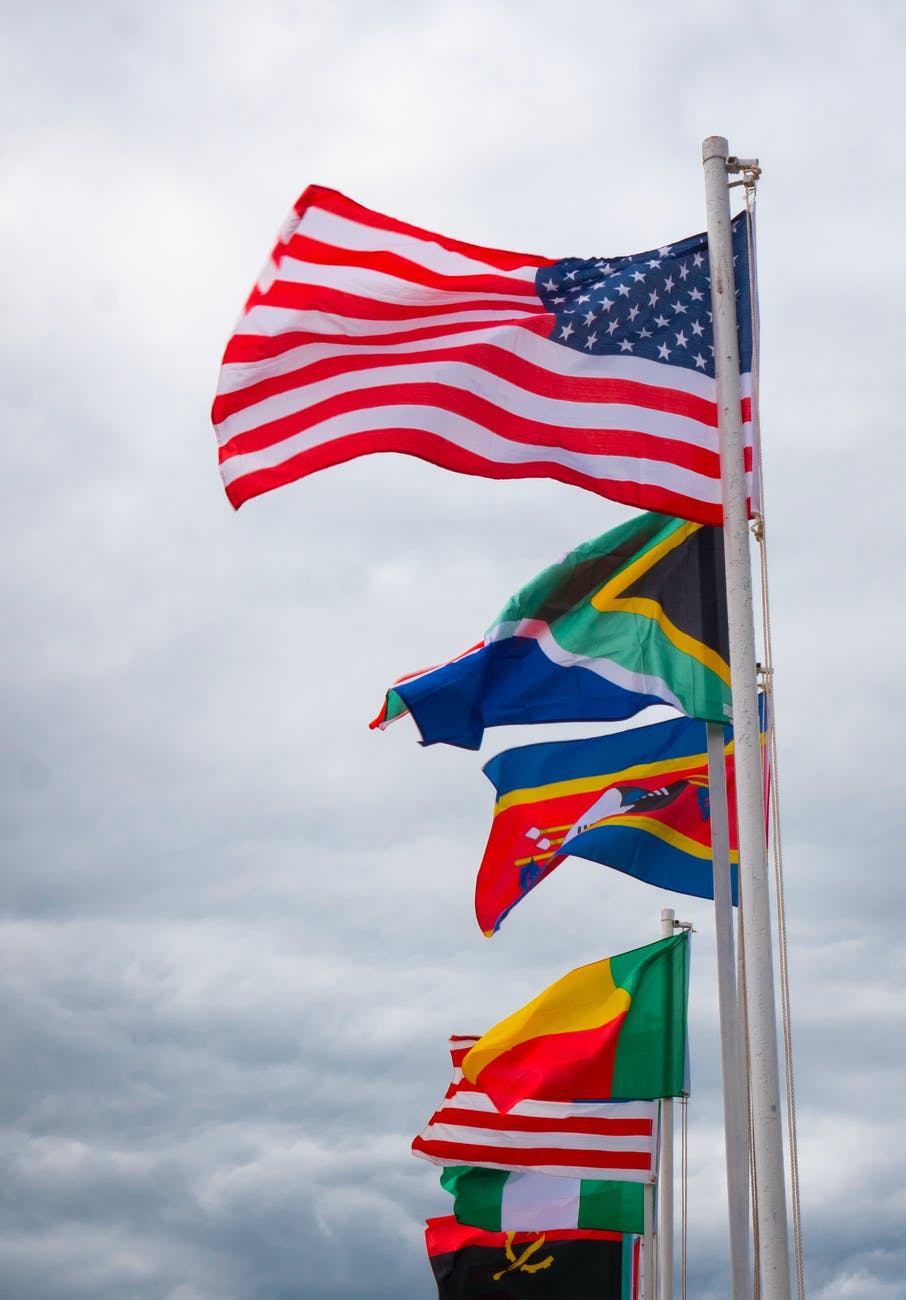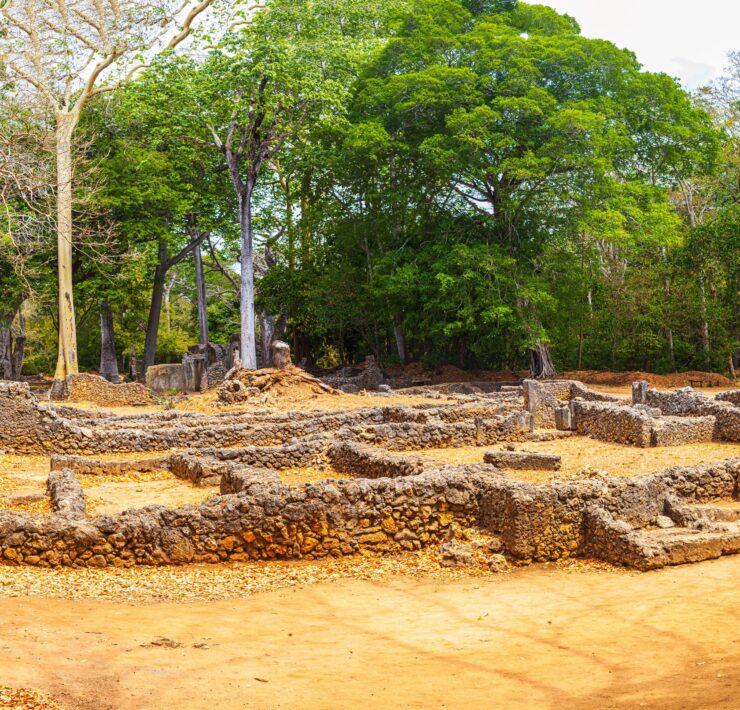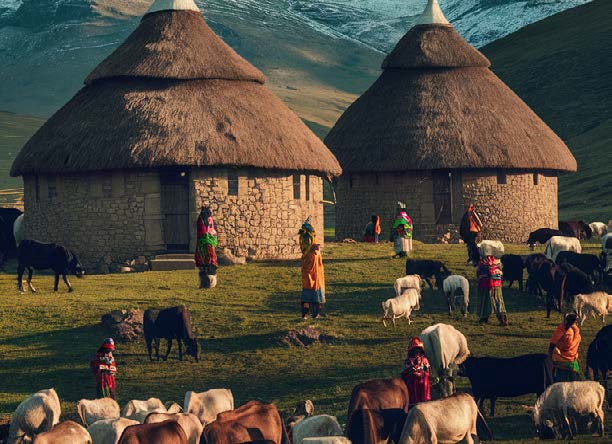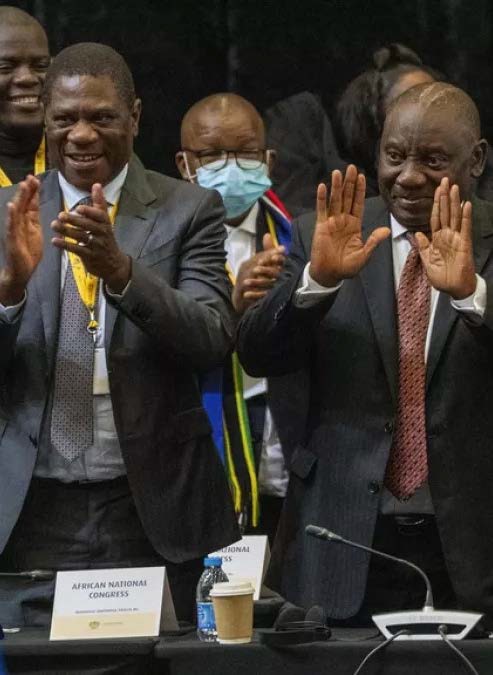
Abel Merawi is from Addis Ababa. He is an English…
Read Next
Part I: How Nations Become Religions
History has a way of refashioning and repeating itself in garbs that fit the age. Such repetition is not constant; the goods and evils of history lurk in human hearts and reemerge whenever and wherever we create its fertile ground. We invite history when we react – we engender bondage through hatred, while freedom flourishes in our acts of love. This makes both humanity and inhumanity our individual and collective reactions to the human condition.
Religion is among the dominant expressions of our humanity, yet plenty are the occasions for using it to justify inhumanity. Currently, it is common to find proud atheists, but upon deeper scrutiny, they are manifestly ardent believers in the modern forms of religion. Today, the nation-states and the offspring of science have become dominant forms of religion.
As Homo Sapiens are sometimes portrayed as story telling hominids. I will start with a tale. Long before modernity, there lived a people who devotedly practiced archaic rituals to appease a transcendent spirit. When the cloudy sky roared with thunder and lightning, just before farming commenced, this people gathered before a majestic temple. In front of a towering monument stood their leader – possessed by a spirit. This is where the people moved in unison to the sound of drums, following the rhythm of ritual dances. Lo and behold! The awestricken crowd suddenly hushed as the spirited leader had raised the symbol rod and chanted the sacred words. Then the spirit embodied and spoke through the leader, promising a good harvest if the people willingly paid homage through sacrifice. In procession, the people laid their finest jewelry and first-rate cattle before the temple, and returned home with a blessing. In a different version of this story, the sacrifices are said to be the slaughtering of innocent women and children.
This ancient story has revisited humans under various religions, until the people gained freedom through scientific and political awakenings. Perhaps the significant transition from religion to the nation-state is marked by the French Revolution (1789-1799). The carnage and the blood streaming from the guillotine, culminated in the idea of secularism or in the separation of state and religion. The French Revolution, aided by the Renaissance, gave an alternative nationalist system to the rest of the world. The great psychologist Erich Fromm remarks, “Nationalism, a relatively recent Western product, is also a part of the development of the West.” This is not to deny that nations did not exist before then. States did exist under the rule of religions, yet they were exactly that, secondary to religion. Thus, the shift is in bringing politics to the forefront, in place of religion, giving nationality the deadly grip on humans.
We, the modern children of science, have replaced religious sects with schools of thoughts. The systematic alteration and transition from religion to nationality, while degrees of variation still exist, was complete wherever people replaced spiritual doctrines with scientific discoveries and/or political ideologies. Communities identified through religious and ethnic similitude began to develop national and ideological identities. Even our wars and conflicts were altered. We fought with the same gusto to defend our nations and ideologies as we did to defend our religion. In this still incomplete process, we continue to merge religious and tribal wars with ideological and national ones.
As the cautionary adage goes – we first make our habits, and then our habits make us! Our ancestors have made divine spirits out of fears and hopes, and once the spirits were firmly placed in concrete foundations, they created the people. We have now created sovereign nations in fear of religious hegemony and in the hope that science will save us. But the nations we had created seemed natural in time, and now they are creating us because we cannot imagine life without them.
Sovereign nations, armed with politics and science, have indeed morphed themselves into religions. Once we broaden the definition of religion from institutional belief in supernatural or divine powers, we gain a deeper meaning that includes science and nations. Religion can be seen positively as a way of providing meaning to individual and communal life. By relating religion to myth, the psychologist Rollo May, in his work, The Cry for Myth, explains that a myth helps to make sense of a senseless world through patterns of narration. May argues, “Myths are self-interpretation of our inner selves in relation to the outside world. they are narrations by which our society is unified.” Similarly, in his book, For The Love of Life, Erich Fromm contends that we are all religious because, broadly speaking, it means we aspire to goals that transcend the mundane or daily necessities of life through visions and sublime feelings.
Religion must be evaluated in relation to its application and ultimate aim. This requires asking: (1) Is our religion life affirming or life denying? (2) Do we follow our religion freely or dogmatically? The answers will show us that it is not religion per se but the kind of humans it fosters that matters most. As Rollo May points out in his classic work, Freedom and Destiny, “Whether scientist or religious, the dogmatic person is one who fears secretly that he must crystallize his beliefs or they will evaporate.” With such fear, the leaders of nations and their followers too have become dogmatic, wreaking havoc in the world through national wars.
Evil personalities in history such as Hitler are often assumed to stand against religion. Contrary to public opinion, Erich Fromm points out that Hitler’s religion is Social Darwinism, and his vision was, the “deification of the national ego, of domination, of inequality, of hatred.” Hitler believed in racial superiority, and so became the servant of evolution. It is worse in the case of colonialists, because their religion was Social Darwinism combined with Capitalism – profit as the highest virtue. I wonder if any nation is different for all claim greatness and superiority. With these glaring examples in mind, let us proceed to examine the religion of nationalism.
It is often too hard to examine something we are a part of, but it is comforting to know that any tangible change begins with the Socratic legacy. This is simply the desire to question in pursuit of wisdom. Only after we question the national divisions of humans can we begin to imagine life beyond national boundaries. Essentially, questioning is the way out of a psychological mist and a collective blindness, which then leads to a mental, emotional and spiritual clarity. Let us then ask of the defining elements of religions and attempt to detect their existence in nationality.
Religions, both past and present, have been integral to our communal life, and we collectively call them ‘religion’ since they share some fundamental features. Based on my limited understanding, the fundamental elements of religion are: An insightful myth or story; an explanation of present reality; monuments and symbolic figures as concrete manifestations; a promise and a path regarding the future; pronouncement of condemnable evils and commendable virtues; and rituals culminating in sacrifices. Perhaps a bit of explanation will shed light on each.
A religion begins with a myth or story, which the believer calls truth. This is a story about nature or history in relation to humans’ role in it. This is the foundation of a religion; a way of making sense of individual and collective life. This story is powerful because it explains the creation of the world, people and societies. Solely based on this story is the present sensible and the future hopeful. The second task of religion, accordingly, becomes making sense of the present natural and social world. Thus, followers are told why life is the way it is. If the image is dark, it is explained in relation to past crimes or adversaries. If the present is deemed bright, explanation includes historical virtues, purity of the religious, and the requirements for sustaining it.
Third comes the magical transformation of abstracts to concretes. This is the making of monuments and symbolic figures as concrete manifestations of the religion’s original story. Religions begin to erect temples, create symbolic figures using icons or tokens. The place of worship and the tokens, gradually, transform into shared sentiments. Once the mind and body of the religious is possessed thusly, promises are made to ardent followers. This is the fourth element; the religious promise of an idyllic future for the genuinely religious. It establishes the path of life for followers. Religions are capable of offering a guide to the meaning of life. This promise also secures religions by instilling itself in the hearts of followers. At this point, followers have heard the grand story of the world; they have made sense of the present; and have witnessed the concrete manifestation of its existence through the place of worship and the various symbols. Now they are ready to receive a promising future. They soon find out that the promise is only for the believers, while doom awaits the unbelievers.
In the fifth stage comes the strict instructions regarding the ultimate forms of good and evil. Religions are not just concepts but also a set of practices. Thus, religions communicate the virtuous thoughts and deeds for followers to practice. They also speak of the thoughts and deeds that are evil since they lead followers astray or even threaten the existence of the religion. Good and evil acts are not mere suggestions; they are rather strictly orders with rewards and punishments. The virtuous believers are rewarded plenty: individually they gain internal peace, socially they gain recognition, and religiously they gain earthly peace and/or eternal life. The reverse awaits the evil disbelievers with plenty of punishment: individually they are internally tormented, socially they are isolated or condemned, and religiously they await earthly punishment and/or eternal damnation. So hope and fear work in unison to protect religion, but something else sustains them.
If not for the next element, it would be impossible to guarantee the perpetuity of religion. This last element is rituals and sacrifices. The founding generation of religion is bound to die like all mortal beings, while the religion supposes to reign eternally. Thus, practices of embracing religious virtue, and avoiding evil must be ritualized. This is what tradition and dogmas are all about! While it is unlikely to remember the reason for an act, it is easy to remember traditions or rituals. These encompass songs, dances, celebrations, dietary, dress codes, or lifestyles to the minutest details. Yet all pale in comparison to the grand ritual – sacrifice of one’s highest value. Yuval Noah Harari, in his book, Sapiens: A Brief History of Humankind, reminds us of the bondage accomplished through sacrifices. He explains that sacrifices demanding the highly esteemed value or possession will extinguish doubts from followers, because we are all too proud to admit that we have sacrificed our highest value for something false. Accordingly, religion is maintained for generations, if not centuries.
Feeling confident that these elements suffice for an introduction, I hope to reserve a detailed discussion on the internal and nuanced workings of every religion for the second part. I assume you have already detected how the same elements of religion have been transformed into pillars of nations. The religion of nations can collectively be named nationalism. This is the modern version of tribalism with a parochial view of humanity. This makes nationalism a primitive religion; only redecorated with the glitters of modernity.
We have begun with the tale of an ancient religion. We are proud of this tale because we ignore our similarly fated lives under the current religion of nationalism. True, it is difficult to judge a system to which we too are members. But it is also true that religious, political and social systems have continually died, giving birth to new ones. The same life cycle awaits our current systems, so it may be wise to imagine life without them. Assuming our children will transcend nationalism and create a holistic religion of life, they may tell a different story about us.
From a future world of humanity, comes the following story regarding our religion of nationality. Long ago, there lived a people who followed a religion they reverently called nationalism. They served a parochial ‘spirit’ whose reign was revealed through scientific and political theories. These people strictly followed the teachings of their holy book – The Constitution. The devout believer was called a good citizen or a patriot. And anyone who undermines the ‘holy’ constitution was labelled a criminal, a dissenter, or a traitor. The religious leaders of nationalism were known as politicians. National flags and anthems had the power of making followers run tears and bloods to protect their religion. As nationalism is a religion devoid of the belief in the supernatural, it is protected by soldiers, police officers, and judges who punish and reward according to the ‘holy’ constitution. In times of crisis, they sacrifice their youth to national wars. The people lived thusly, and their religion continued as long as the spirit of nationalism consumed their minds and hearts.
Oh, I truly hope this story shows you the deadly road to which our religion of nationality is currently heading! But we still have time to change our ways, if only we are courageous enough to abandon the antilife doctrines of nationalism. The problem is not in religion per se, but in truncated and parochial religions that demand dogmatic acceptance. I wish not to end in a pessimistic tone, so I conclude by briefly introducing a promising alternative. The spirituality that makes us believe in something higher is a truly human trait, and it is fully expressed when our religion is open to embracing the whole of humanity.
Promising to return to the humanistic religion next time, I end with an idea from one of the great humanists in history. Johann Wolfgang von Goethe spoke of the shift from nationalism to humanism in 1799, when all were busy fighting for and building nations. Goethe insightfully remarks, “At a time when everyone is busy creating new Fatherlands [nations], the Fatherland of the man who thinks without prejudice and can rise above his time is nowhere and everywhere.” Indeed, the home of the humanist is ‘nowhere’ since every corner of the world is demarcated and partitioned among sovereign nations. For the worthy human being, home is ‘everywhere’ because the humanist had transcended national borders and made every inch of the earth one’s abode.
Subscribe now for updates from Msingi Afrika Magazine!
Receive notifications about new issues, products and offers.
What's Your Reaction?
 PIN IT
PIN ITAbel Merawi is from Addis Ababa. He is an English literature teacher, freelance writer/reporter for Ezega.com and an Amharic-English translator and editor. He also writes for www.msingiafrikamagazine.com. You can reach him via: abelmerawi4@gmail.com





















